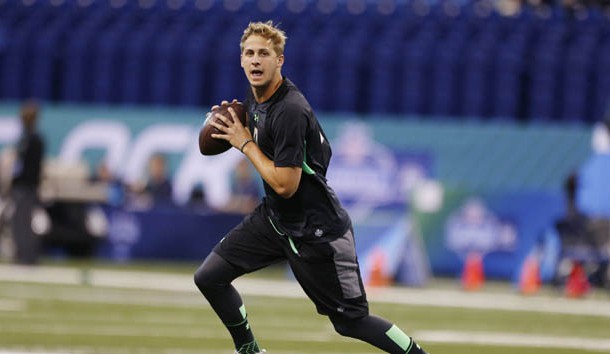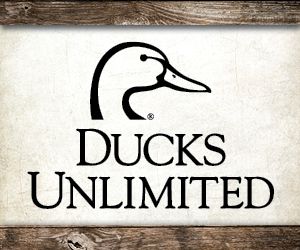
Feb 27, 2016; Indianapolis, IN, USA; California Golden Bears quarterback Jared Goff throws a pass during the 2016 NFL Scouting Combine at Lucas Oil Stadium. Mandatory Credit: Brian Spurlock-USA TODAY Sports
Cleveland made a splash Wednesday, sending the No. 2 overall pick in the NFL Draft to the Philadelphia Eagles and trading away from one of the top two quarterbacks in the 2016 class.
The Browns added the Eagles’ first-round (eighth overall), third-round (77th) and fourth-round (100th) picks in this year’s draft along with a 2017 first-rounder and 2018 second-round pick. To complete the trade, Cleveland kicked back a conditional 2017 fourth-round pick to Philadelphia.
The doubters will say, “The Browns passed on a franchise quarterback!”
The doubters will say, “We’ve seen this before in Cleveland, trade-backs don’t work!”
The doubters will say, “It doesn’t matter, the Browns will screw it up wherever they are picking!”
I am not one of those doubters. It’s time to build, not gamble.
Let’s address the doubters.
The doubters will say, “The Browns passed on a franchise quarterback!”
Whatever the term “franchise quarterback” means, the adage is you don’t pass on one in the draft. But the Browns don’t think they did by bailing from the No. 2 pick.
With Cal quarterback Jared Goff expected to be the No. 1 overall pick to the Rams, North Dakota State quarterback Carson Wentz is considered by many to be the next best option at the position and on a similar level as Goff as a prospect. The Browns (and several other NFL teams) don’t view Wentz in that respect, while the Eagles (and several others NFL teams) do.
So the deal makes sense for both sides.
Some will point to analytics as to why this move was made, but if the Browns loved Wentz and viewed him as a franchise quarterback then they don’t make this deal.
The doubters will say, “We’ve seen this before in Cleveland, trade-backs don’t work!”
Technically, the doubters are partially right because the Browns have traded down in the first round in recent years with dreadful results.
Cleveland fans, feel free to skip the next three painful paragraphs.
In 2014, the Browns entered draft weekend with the fourth overall pick. Wide receiver Sammy Watkins and pass rusher Khalil Mack were two of the notable names available on the board, but the Browns accepted a deal with the Buffalo Bills, trading back to the ninth selection and picking up a 2015 first-rounder.
Cleveland wound up trading up one spot to No. 8 to draft cornerback Justin Gilbert, who has been a monumental bust through two seasons. Some of the names who were drafted soon after Gilbert include linebacker Anthony Barr (ninth overall), wide receiver Odell Beckham Jr. (12th) and defensive tackle Aaron Donald (13th).
The 2015 first-round pick from Buffalo turned out to be No. 19 overall, where the Browns drafted offensive lineman Cam Erving. It was a disastrous rookie season for him at guard, but the franchise hopes he can fill the shoes of Alex Mack at center in 2016.
Due to that agonizing history, it is understandable why some would be skeptical of trading out of the top five in the draft. However, the response to those doubters is simple — that trade was sound and the correct move. However, the decision-makers in place at the time simply failed to capitalize on the assets. If the Browns drafted Beckham at No. 9 in 2014 and then defensive back Byron Jones with the 19th pick in the 2015 draft, then no one is complaining about the move.
Although it is absolutely a gamble to trade away a top-five pick, the return on investment can be even better. And with new decision-makers at the top of the food chain in Cleveland, I am willing to give them the benefit of the doubt that they can maximize the value of what was once the No. 2 pick.
The doubters will say, “It doesn’t matter, the Browns will screw it up wherever they are picking!”
There have been numerous missteps by the Browns organization since its return to the league in 1999, most notably inconsistent results on draft weekend. There have been some hits (like left tackle Joe Thomas), but far more misses.
The Browns are currently in this precarious position as a franchise because of wrong moves by previous coaches and executives. But those decision-makers are no longer in the building in Berea, Ohio. It is a fresh start for the front office led by executive vice president of football operations Sashi Brown, chief strategy officer Paul DePodesta and vice president of personnel Andrew Berry.
The new brain trust brings innovative ideas and advanced metrics to the organization. Unproven? Yes. No one is saying the Browns have earned the right to be called a dependable drafting team. However, it is going to take time and assets through the draft for the Browns to build a contender.
And the Browns aren’t done dealing. There is a very good chance Cleveland trades back again from the No. 8 pick (maybe to No. 13 with the Miami Dolphins, who might be looking to trade up for Ezekiel Elliott?). And the Browns also own the first pick on day two (No. 32) and the first two picks on day three (Nos. 99 and 100).
Can the Browns hit on the draft picks acquired through trades? Only time will tell, but let’s allow it to play out instead of predetermining doom and gloom based on cynicism. And as a native of Northeast Ohio, I’m allowed to say that.
–Dane Brugler is senior analyst of NFLDraftScout.com, owned and operated by The Sports Xchange, in cooperation with CBSSports.com.


